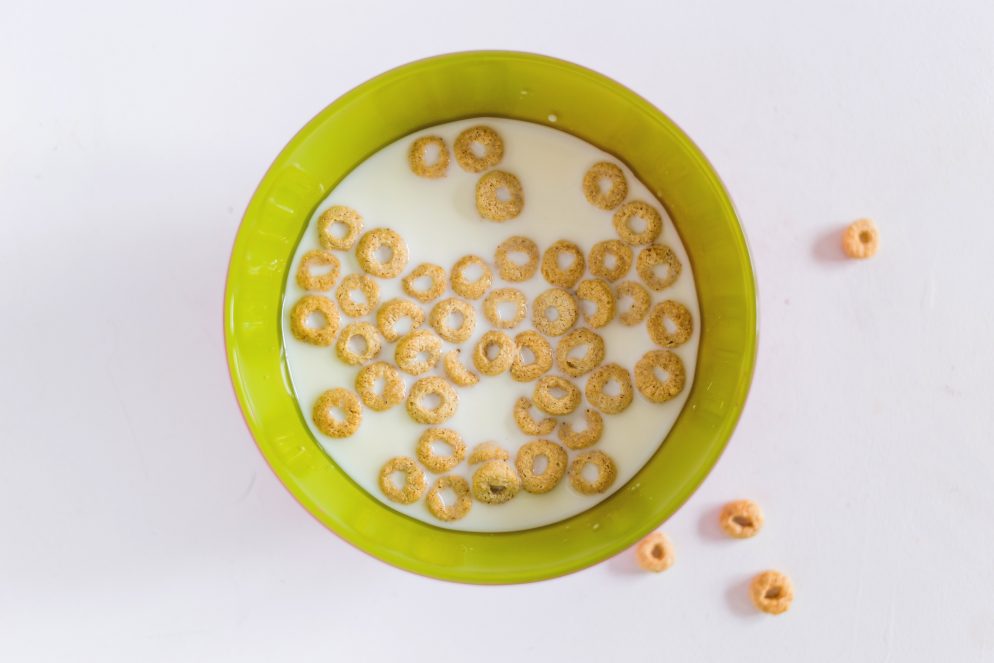
Lactose Intolerance is a phrase that is commonly thrown around, but many people don’t realise the signs, symptoms, treatments and that yes! you can still consume some of your favourite dairy foods!
What is lactose intolerance?
Lactose intolerance comes from the body not having enough lactase enzymes in order to digest lactose.
What is lactose?
Lactose is a milk sugar that is broken down by the enzyme lactase, which is found in the small intestine. It is present in milk based products such as yoghurt, cream and cheese.
How do I know if I am lactose intolerant?
What are the signs/symptoms?
Symptoms may include:
- Bloating
- Gas
- Abdominal pain
- Diarrhoea
- Flactulence
- Stomach cramps
- Vomiting
Please note that these can also be common symptoms for many other conditions and it is important to speak with your GP before removing foods from your diet.
Does this mean I can never have milk or milk products again?
No! Everyone has different tolerance levels to lactose and therefore if you undertake tolerance testing with your dietitian you can assess how much lactose you can personally have. Generally speaking, many people can tolerate small quantities over time (depending how much you eat and eating it with other foods. For example, someone may be able to tolerate milk in their cereal but not tolerate a whole glass of milk OR they can tolerate milk in their coffee but not tolerate a bottle of strawberry Big M. Full cream milk seems to be better tolerated than low fat milks.
There are lactose free milk products in your local supermarket. If you enjoy the taste of cows milk then look out for labels that say ‘lactose free’
I love milk – what are some tasty alternatives?
Soy milk, almond milk and other milk alternatives do not contain lactose – but check the labels to ensure they are calcium enriched.
Are lactose free products available?
In recent times the lactose free product range has exploded into supermarkets. You definitely won’t miss out or feel left out when shopping for your favourite items like ice-cream!
How can I manage my intolerance to lactose?
If I am eating at a restaurant or am away on holiday and I’m not sure of the lactose content of some of the menu items, how do I help prevent the discomfort?
You can purchase lactase tablets or drops from your local pharmacy which can be added to food or taken along with food to help with digestion.
How to shop for and check the ingredients list at the supermarket
If you are trying to avoid lactose, ingredients to look for in lists on food labels include:
- Milk solids
- Non-fat milk solids
- Whey
- Milk sugar
Foods that may contain hidden lactose include:
- Muesli bars
- Scrambled eggs
- Quiche
- Cheese sauces
- Custard
- Some breads and margarines
- Pancakes
- Processed breakfast cereals
- Cakes and muffins
Can I eat cheese?
Hard cheeses are naturally low in lactose and can be safely consumed without symptoms and discomfort.
Some of these cheeses include:
- Cheddar
- Edam
- Swiss
- Mozzarella
- Brie
- Feta
Also, butter and cream actually contain very low levels of lactose and are well tolerated.
However, there are also lactose free cheeses readily available at the supermarket
If you have lactose-intolerant children
Meal planning with kids can be hard enough at the best of times, let alone when they have an intolerance. Thankfully there are many healthy options for your little ones with clear labels and ingredients you can feel confident about.
Check out the Dietitians Association of Australia here: https://daa.asn.au/smart-eating-for-you/smart-eating-fast-facts/medical/understanding-lactose-intolerance/
You may alao want to book an appointment to seek the advice from an independent HealthMint GP.
Want more information?
Call (03) 5611 3365 to speak to a friendly patient concierge
or book an appointment here